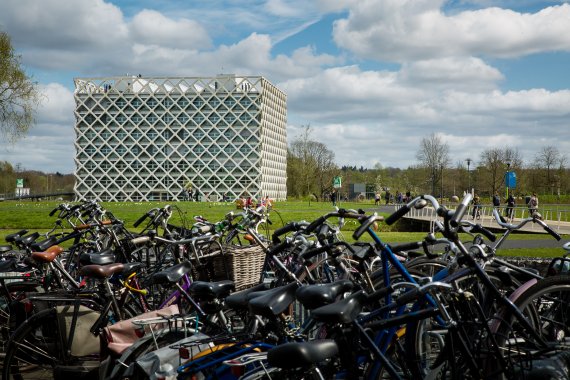© Sven MenschelSix editors of U-Today, the news medium of the University of Twente, have sent a letter to Ingrid van Engelshoven, the Dutch Minister of Education, Culture and Science. They do not always have access to policy documents and reports, which sometimes makes it difficult to properly keep an eye on the management. ‘Resolution lists by the Executive Board are cleaned and are often only published months after the fact’, the letter states. ‘Policy documents in (democratic!) participational bodies are increasingly often marked as confidential and discussed in private committees.’
Public administration
Especially now that the participational structure is involved increasingly often in the decisions regarding important matters, the editorial office in Twente is pained by the limitation of transparency. ‘If journalism depends on what executives are prepared to tell, then it stops being public administration.’
U-Today wants clear rules: when can documents, minutes and decisions be marked as confidential? The editorial office writes that if the Minister would set such rules, then executives and journalists could make sure the other party adheres to them.
WUR
Guido Camps, chair of the WUR Council, thinks that few executive items are made confidential in Wageningen. ‘As soon as the discussions touch the topic of money or people, the Executive Board makes these discussions confidential in consultation with the participational council. This means that discussions regarding the tender for a new building and appointment procedures are confidential. But all other agenda points are public; including the budget. So confidentiality is not an issue in Wageningen.’
Interests
Herbert Wormeester, chair of the Twente University Board, understands the concerns of the editors. ‘As the Board, we often receive documents with the word “confidential” marked on them. We immediately point this out to the executives, because this should only happen when personal interests are at risk, in the case of job interviews for example, or when the documents contain information that could lead to financial damage. In those cases, we address the executives.’ Wormeester thinks that his board ‘meets as publicly as possible’. However, the chair says that the resolution lists and agendas of the Executive Board often arrive late.
The Landelijk Overleg van Fracties (‘National Consultation of Fractions’), a network of the university participational councils, supports the appeal to the Minister. The LOF recognises the problem but wonders whether additional rules will provide a solution.

